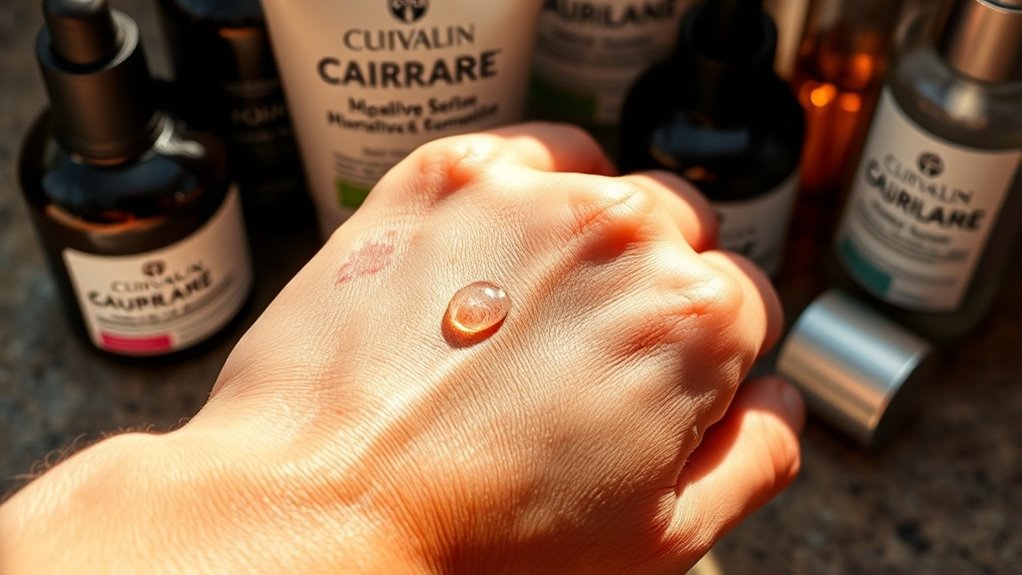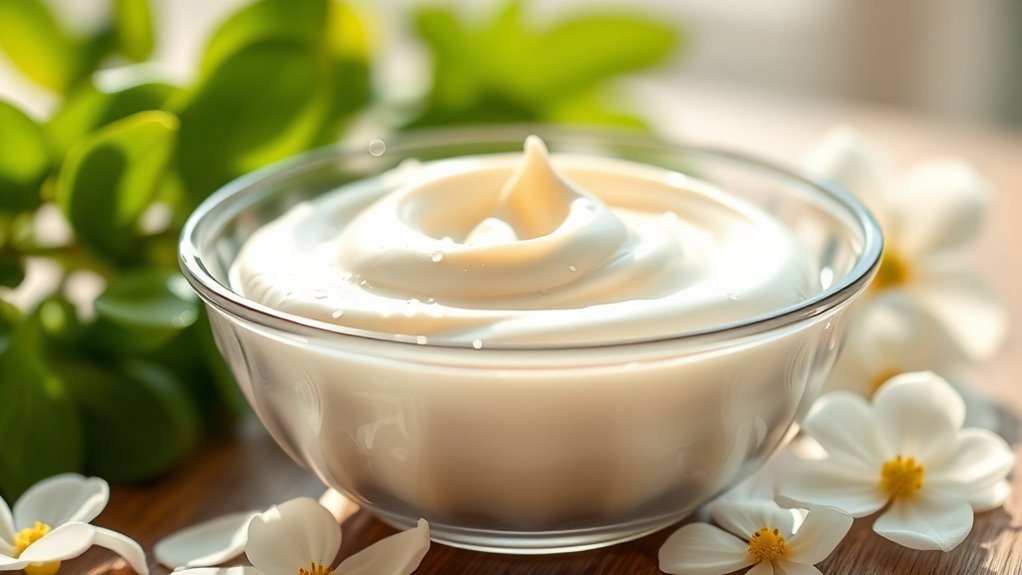If Your Skin Reacts to Everything, You Need These Tips
If your skin reacts to nearly everything, start by tracking daily exposures in a journal to pinpoint triggers like allergens or stress. Choose hypoallergenic, fragrance-free products with minimal ingredients, and always patch test them first. Build a gentle routine: cleanse lightly in the morning, apply a light moisturizer, and use a repair balm at night. Try natural remedies such as aloe vera for soothing inflammation or oatmeal baths for itch relief. Adopt preventive habits like staying hydrated, eating anti-inflammatory foods, and managing stress for better skin health—explore these strategies further for lasting comfort.
Identifying Common Skin Triggers
Have you ever wondered what sets off your sensitive skin?
To get sensitive skin help, you track daily exposures like allergens, weather changes, or stress, which often trigger reactions.
Note flare-ups in a journal; for instance, identify if certain foods, fabrics, or environmental factors cause irritation.
This proactive approach lets you avoid triggers, reducing discomfort and promoting healthier skin. Additionally, being aware of common mistakes in your skin care routine can significantly improve your skin’s condition.
Selecting Gentle Skincare Products
Once you’ve identified your skin’s triggers, you’ll want to focus on selecting gentle skincare products that minimize irritation.
Look for labels that say ‘hypoallergenic’ or ‘fragrance-free’ to reduce risks.
Choose products with fewer ingredients; this helps avoid potential irritants.
Always patch test new items before full use.
Prioritize those formulated for sensitive skin types.
Seek out brands that use natural, non-irritating components. Additionally, consider products that are dermatologist-approved to ensure they meet safety and efficacy standards for sensitive skin.
Creating a Soothing Daily Routine
With the right gentle products selected, you can build a soothing daily routine that keeps your sensitive skin balanced. Start with morning cleansing and evening hydration to maintain calm. Consistency reduces reactions. Incorporating soothing skincare techniques can further enhance your routine.
| Routine Step | Benefit |
|---|---|
| Gentle morning cleanse | Removes impurities without stripping |
| Apply light moisturizer | Locks in hydration and barrier |
| Mid-day check-in | Prevents buildup of irritants |
| Evening double cleanse | Thoroughly removes grime |
| Nighttime repair balm | Soothes and regenerates overnight |
Exploring Natural Remedies for Relief
Are you wondering how natural remedies can ease your sensitive skin’s discomfort?
Aloe vera gel soothes inflammation with its cooling properties, while an oatmeal bath calms itching and repairs the barrier. Coconut oil provides gentle hydration without clogging pores, and chamomile compresses reduce redness effectively. Additionally, incorporating natural ingredients into your skincare routine can greatly enhance your skin’s resilience against irritants. Always patch test these options first for safe relief. Consult a dermatologist if needed.
Implementing Preventive Lifestyle Habits
Building on natural remedies, you can prevent sensitive skin flare-ups by adopting simple daily habits that protect your skin daily.
- Choose fragrance-free products: Opt for hypoallergenic items to minimize irritants and maintain your skin’s barrier.
- Stay hydrated and eat clean: Drink plenty of water and incorporate anti-inflammatory foods like omega-3-rich fish to reduce inflammation.
- Manage stress effectively: Practice mindfulness or yoga, as stress hormones can trigger reactions.
- Protect from elements: Always apply broad-spectrum SPF and wear protective clothing to shield against UV and pollutants.
- Be mindful of fragrances: Some fragrances in skincare can cause irritation, so it’s essential to read labels carefully.





